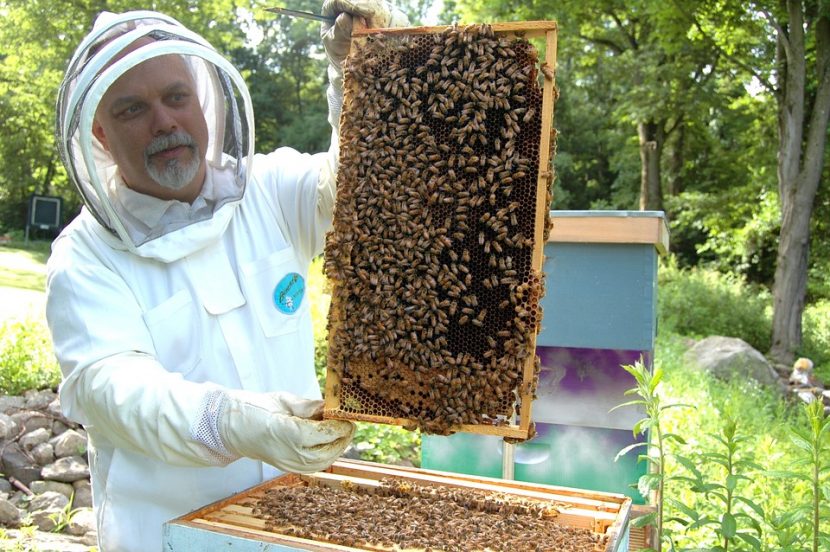All over the world, people are worried about honeybee populations. Declining bee populations mean a decline in pollination, as well as a decrease in food supplies for birds. Basically, if bees disappear, we’ll be in a lot more environmental trouble than you might think. As a result, homesteaders everywhere are helping their local bee populations out by becoming beekeepers, but should you do the same? There are a few questions you should ask before you commit to home beekeeping.
Is One of Your Family Members Allergic to Bees?
First, if anyone in your family is allergic to bees, then the risk of keeping bees is probably too high. Unless you have a never-ending supply of epinephrine injections, then you might want to leave beekeeping to other homesteaders. After all, you can still trade vegetables, herbs, crafts, and other items for honey if someone nearby has a bee colony.
Do You Have a Reliable Water Source?
Bees drink a surprising amount of water while they go about their work making honey and building their hives – up to a liter a day! If you have a natural source of water that they can use, you’ll be in good shape to start a colony. If water is tight, you might want to reconsider.
Are There Nearby Nectar Sources?
You might think, “Well, I have an entire garden right here!” Believe it or not, your garden probably won’t provide enough nectar for your bees. Fortunately, if you live in a wooded area with a lot of wild flora within about three to five miles of your home, you’ll have plenty of nectar sources around, including your garden.
These are the most important questions to ask yourself before starting a bee colony. Finding out the answers could help you determine whether or not you’re a good candidate to be your area’s local beekeeper.
If you liked that, you might also like:
Learn How To SUPERCHARGE your garden or farm…
Click Here To Get The Best Survival Medical Course…
Check Out These Mind Blowing Survival Skills…

17 thoughts on “Should You Be a Beekeeper? 3 Questions to Ask First”
The reason the bees are dying is the GMO crops. Since they graffed poison into the seeds, it permiates the intire plant including the pollen. They take it back to the hive and it kills the bees and the queen. That is why our bees are dying.
Not to mention the heavy doses of pesticides that are sprayed on GMO crops…
It is NOT the GMO’s! It is the pesticides! (If it really is the GMO’s, please provide a brief bibliography of references to peer reviewed research publications citing the documentation.)
I would bee willing to give it a try! I live in 32177, Florida!
I am interested in saving the bee’s.
I’m interested in saving bees. We has bees before but they died the first year. They were wonderfull. We reside in Indiana.
Yes, I’ve been thinking about becomina a beekeeper. I’d like to know more.
I have 70 acres with a small river running through it completely covered in forest. Also have a springfed creek that begins on my property and ends in the river . Only at my property on weekends, what is the maintenance on taking care of bees
Max, my folks kept bees year’s ago. They don’t need much ongoing attention once hives are set up. Occasional checking and a medicine party you astick in the hive. The work comes when you deliver hives to farmers who rent them for pollination. But both my mom and add had fulltime jobs and they only did bee stuff now and then, on weekends. You’d bee fine- haha
Hi I have a swimming pool. Would this be a problem for the bees.
I am thinking that the inground pool that is supplied by a municipal source would have chlorine and/or fluoride in it. I can not imagine those would be good for a bee, or you for that matter.
Would a inground pool/salt be ok for the water source?
I am interested… live in 06812
I would be interested in having bees
would love to learn more about bee keeping
I have been thinking about this for a long time now. Would love more info and how do I start. Thanks
I will love to be a beekeeper , please send me more info. Thank you very much !
God Bless !